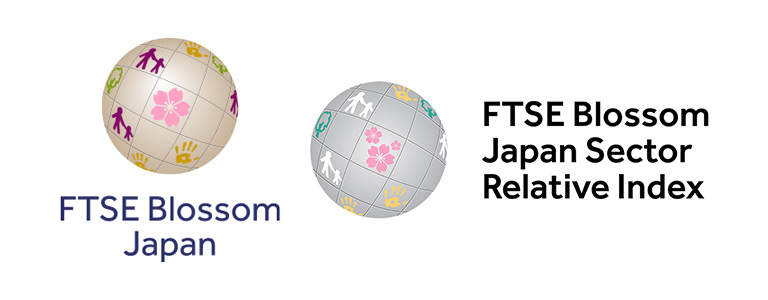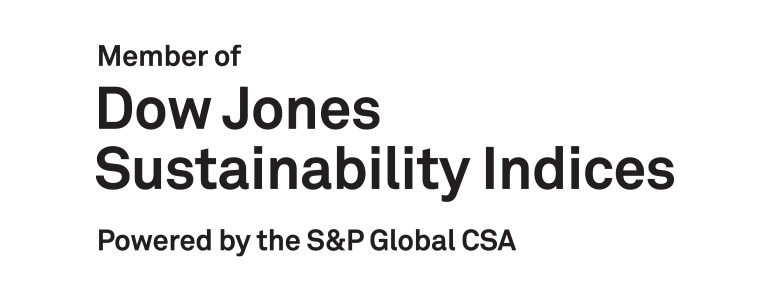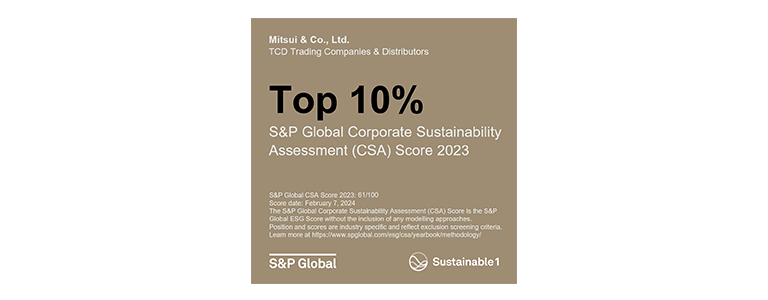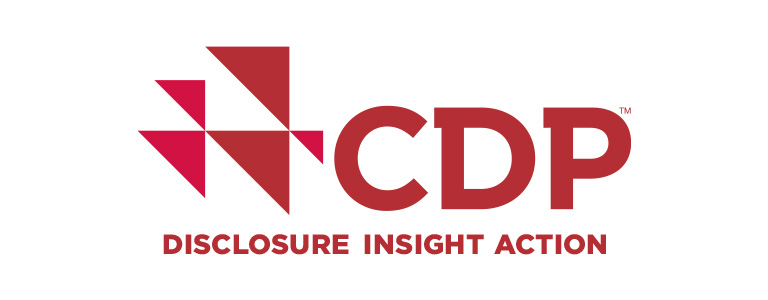Environment
Biodiversity
Policies and Basic Approach
Under our Environmental Policy, we have stipulated that we will assess the environmental impact of our business activities and work to conserve biodiversity. In our Medium-Term Management Plan 2026, we have committed to contributing to the achievement of Nature Positive through business.
Our business activities are dependent on ecosystem services, which are generated through connections between a diverse range of living beings. Accordingly, we aim to minimize our impact on the environment by conserving biodiversity both through our business activities and through our efforts in other areas, such as social contribution activities. Specifically, in our business activities, we will work to ensure the sustainable use of natural resources, such as forest and ocean (fisheries) resources, and prevent any environmental impact on areas adjacent to our operational sites. We will also identify business areas with relatively high impact on biodiversity and will promote actions to conserve biodiversity. In addition, we are working to conserve biodiversity through initiatives such as Mitsui's Forests and the Mitsui & Co. Environment Fund.
Goals and Targets
Sustainable Use of Commodities that are Crucial to Biodiversity
- Aim to procure natural rubber, palm oil, timber and paper products that have zero connection to deforestation.
- Increase the ratio of sustainable certified palm oil procurement, including RSPO-certified, to 100% by 2030.
Conserving Biodiversity
- Maintain and manage Mitsui's Forests that have been designated as Biodiversity Conservation Forests (approximately 10% of our company-owned forests), and other specified areas, by carrying out regular ecosystem monitoring with an awareness of the need to conserve biodiversity.
- Contribute to reforestation and the protection of endangered species by providing support through the Mitsui & Co. Environment Fund for activities and research linked to the conservation and use of ecoservices and procurement that enables ecosystems and humans to coexist.
- Contribute to the creation of national and international frameworks for biodiversity conservation through our proactive participation in social initiatives to conserve biodiversity, such as the TNFD Forum and the 30by30 Alliance.
Sustainability Governance and Oversight
Sustainability Committee
The Sustainability Committee works under the Executive Committee to plan, formulate
and provide proposals on basic management policies, business activities, and corporate policies and strategies
related to biodiversity.
The Sustainability Committee is structured so that its activities are
appropriately supervised by the Board of Directors, and matters discussed by the Sustainability Committee are
regularly discussed and reported to the Executive Committee and the Board of Directors.
| Officer in Charge | Makoto Sato (Representative Director, Senior Executive Managing Officer, Chief Strategy Officer (CSO), Chairperson of the Sustainability Committee) |
|---|---|
| Administrative Office | Corporate Sustainability Div., Corporate Planning & Strategy Div. |
Please refer to the links below for more information on Mitsui's Sustainability Management Framework and the activities of the Sustainability Committee.
Structure for Conserving and Monitoring Biodiversity in Mitsui's Forests
Areas of Mitsui's Forests that have a high significance from a biodiversity perspective (about 10% of the total area) have been designated as Biodiversity Conservation Forests and these have been classified into various categories to facilitate management that conserves biodiversity. Each forestry office monitors local ecosystems by setting up core surveying plots in three different locations in accordance with the size of the forest and its situation in regard to habitats of rare species. Surveys are carried out once per year (or once every five years for accumulation surveys) and include land surface surveys (vegetation, rare species), surveys of forest conditions (plant species, number of trees, animal damage, etc.), and accumulation surveys (diameters at chest height, tree height, amount of growth). If a rare species is discovered, particularly rare vegetation, we take steps such as marking the relevant area and ensuring it is excluded from forestry operations. Also, we recognize the possibility that forestry operations can have an environmental impact on a broad area around the forest so when carrying out forestry operations at Mitsui's Forests, such as regeneration felling, thinning, and establishing roads, we always carry out a site survey beforehand based on a checklist of over 20 items, including soil conditions, surface vegetation, forest conditions, and the situation regarding the surrounding area. We then revise the forestry operation plan based on the results of this survey and if necessary, change or cancel the plan. Within three months of carrying out work, we make sure to carry out a follow-up survey to confirm that the forestry operations were carried out properly with the aim of minimizing environmental impact and conserving biodiversity. In June 2023 at Tashiro Forest, we carried out a patrol during a festival wishing for a safe mountaineering season. We will continue to monitor the area closely, as large-scale slips that have been occurring in an area managed by the Ministry of the Environment, adjacent to our holding area, have now spread closer to important alpine wetland.
ESG Risk Management
In conducting business, we have put in place a group-wide system for ensuring that utmost consideration is given to the environment and society in projects at all stages, including at the launch of a new business, during operations, and even during the exit stage. For investment projects considered to be high risk in regard to biodiversity (such as food, underground resource development, and infrastructure development projects), we carry out ESG risk assessments that put a particular focus on biodiversity and then implement improvement plans if necessary.
Mitsui & Co. Environment Fund Initiatives
We support various activities and research initiatives that contribute to solving global environmental issues with the aim of realizing a sustainable society in which the economy and environment are in harmony. Since 2005, we have supported a wide range of projects that contribute to solutions to worldwide environmental issues and the building of a sustainable society through the Mitsui & Co. Environment Fund. For more details about the fund, please use the following link.
Mitsui & Co. Environment Fund: About the Mitsui & Co. Environment Fund
Collaborating with Stakeholders
Participation in Initiatives
We are promoting and expanding our efforts to address biodiversity through participation in initiatives. Participation in each initiative is decided after confirming that it is consistent with our basic policy and initiatives for biodiversity.
TNFD Forum (Taskforce on Nature-related Financial Disclosures)
The Taskforce on Nature-related Financial Disclosures (TNFD)
was launched in June 2021 by the United Nations (UNEPFI/ UNDP) and other international NGOs. It calls for
companies to disclose both their impact and dependence on nature in accordance with a framework similar to
that of the TCFD. Many companies, public institutions, and financial institutions, mainly in Europe and the
U.S., have expressed their support for the TNFD and are working to establish international standards for the
disclosure of information on natural capital.
The TNFD Forum is positioned as a group of stakeholders
who support the TNFD discussions. As a member company of the TNFD Forum, we contribute to the conservation of
biodiversity through participation in discussions on the establishment of the TNFD framework.
30by30 Alliance
30by30 is an international target related to natural capital
that aims to conserve or protect 30% of the world's land and sea areas by 2030, and is positioned as one of
the key measures in the Kunming-Montreal Global Biodiversity Framework adopted in December 2022.
The
30by30 Alliance is an initiative by private companies, local governments, and organizations, with the Ministry
of the Environment serving as the secretariat and the Keidanren Committee on Nature Conservation and other
organizations as the proposers (organizers). Mitsui joined the 30by30 Alliance in March 2022, and will
continue to contribute to biodiversity conservation through participation in discussions on system design and
other matters. We participated in the Ministry of the Environment's 2022 trial process for the certification
of Natural Symbiosis Sites (areas where biodiversity is being preserved), submitting Kiyotaki Forest in Kyoto,
one of our company-owned forests, for certification. The forest was recognized for its consideration of
biodiversity conservation from the perspective of preserving Kyoto's culture and directing operations towards
natural forests, and was awarded the equivalent of a "Natural Symbiosis Site" certification. Through such
tangible initiatives, we will continue to contribute to the 30by30 initiative.
RSPO (Roundtable on Sustainable Palm Oil)
The Roundtable on Sustainable Palm Oil (RSPO) is a non-profit organization established to promote the sustainable production and utilization of palm oil through the conservation of tropical rain forests and biodiversity. Palm oil production has been linked to the destruction of tropical forests through the development of oil palm plantations, as well as human rights issues. As a business that handles palm oil, Mitsui agrees with the RSPO's philosophy of contributing to sustainability through industry. Since joining the organization as an ordinary member in 2008, we have been collaborating on business-based sustainable procurement initiatives that take into account the conservation of tropical forests and biodiversity, respect for the rights of indigenous and local peoples, and other considerations. A sustainability-focused procurement code, including specific standards for palm oil, has been formulated for the 2021 Olympic and Paralympic Games in Tokyo. In connection with this, Mitsui representatives as members of an oil and fat industry association verified progress on and promoted initiatives related to the RSPO and activities under the Malaysia Sustainable Palm Oil (MSPO) and Indonesia Sustainable Palm Oil (ISPO) systems.
Forest Stewardship Council® (FSC®)
The Forest Stewardship Council® (FSC®) is an international non-profit organization that promotes management of the world's forests in a way that is environmentally appropriate, economically viable, and socially beneficial, including with regard to respect for human rights. Mitsui has obtained FSC® forest management (FM) certification (FSC®-C057355) at 75 of its forests, which in total approximately 45,000 hectares, while Mitsui Bussan Forest Co., Ltd., a Mitsui subsidiary, has obtained Chain of Custody (CoC) certification for the processing and distribution of cut lumber (FSC®-C031328). As one of the top private-sector suppliers in terms of volume of FSC®-certified Japanese-grown lumber, Mitsui is helping to promote FSC® in Japan and to discuss and draft the Japanese version of principles, standards, and risk assessments. Mitsui has obtained FSC® certification for its forest resources business as well, and promotes responsible management of forest resources.
Keidanren Committee on Nature Conservation
The Keidanren Committee on Nature Conservation was
established in 1992, under the Keidanren Global Environment Charter, which promotes exchanges between
corporations and NGOs, and raises awareness among corporations of nature conservation and biodiversity.
Mitsui has been a member since its establishment, and we support the Keidanren's Declaration of Biodiversity
and its accompanying Action Policy. We have participated in the Keidanren Initiative for Biodiversity
Conservation and the Business for GBF Project in collaboration with the Ministry of the Environment, and will
further promote initiatives for biodiversity and nature conservation under the Kunming-Montreal Global
Biodiversity Framework adopted at the 15th meeting of the Conference of the Parties to the Convention on
Biological Diversity (CBD COP 15).
CDP(Forests)
Since 2016, we have responded to the questionnaire on timber from CDP Forests, a global disclosure program for corporate information related to forest risks. Based on our response to the questionnaire carried out in 2023, we received the score "B" in relation to Forests (timber).
Collaborating with NGOs
Conserving the Prey Lang Forest in Cambodia (REDD+*)

©JEREMY HOLDEN
Prey Lang, located in the northeast of Cambodia along the west bank of the Mekong River, is the largest tropical lowland evergreen forest in Indochina. It is inhabited by many wild animals, including endangered species, and is also an important source of water for Cambodia. However, illegal logging, along with reclamation of land for farming by local communities, has resulted in progressive deforestation, loss of wildlife habitats, and an increase in GHG emissions that would normally be accumulated in the forests. In partnership with Conservation International, an international NGO, Mitsui has been using the REDD+ mechanism established under the Paris Agreement in cooperation with the Cambodian Ministry of Environment to reinforce forest patrols to prevent illegal logging in the Prey Lang Forest. Moreover, Mitsui has been engaging in dialogue with local communities to provide support for activities, such as instruction for and promotion of organic farming and rice farming as alternative sources of livelihood that do not rely on logging, with the aim of contributing to forest and biodiversity conservation.
* REDD+ (Reducing Emissions from Deforestation and forest Degradation, and the role of conservation, sustainable management of forests and enhancement of forest carbon stocks in developing countries): A scheme which provides economic incentives such as carbon credits through the mitigation of deforestation and degradation of forests in developing countries.
Collaborating with Local Governments
Project to Restore Endangered Sumatran Tiger Populations in Indonesia
Bukit Barisan Selatan National Park (BBS National Park) is a UNESCO Natural World Heritage site on the island of Sumatra, Indonesia and it is an important natural habitat for several endangered large mammals, including Sumatran rhinoceroses, Sumatran elephants, and Sumatran tigers. However, many encounters and collisions between residents and Sumatran tigers have been reported and this threat to the livelihoods and safety of residents has led to the killing of tigers, which has become a factor in declining tiger populations. Through a Mitsui & Co. Environment Fund project, we subsidized activities by the World Wide Fund for Nature Japan (WWF Japan) to carry out habitat surveys and camera trap investigations in collaboration with the local government, the national park authorities, and residents of five local villages in order to decrease damage from encounters (all damage, including damage to tigers, damage to people, and damage to agriculture and livestock). The results of these surveys provided information about Sumatran tiger habitats, and has been used as the basis for land usage planning that supports the formation of a community in which local residents and tigers can coexist, while also contributing to a recovery in the tiger population. Currently we are working with the provincial and local governments on activities for monitoring the implementation of land usage plans.
Initiatives
Land (Forests and Soil)
Initiatives in the Forest Resource Business
Along with business partners, Mitsui is engaged in the plantation business in
Australia and Chile (approximately 9,000 hectares in total as of March 31, 2023), with the aim of ensuring the
stable supply of wood chips, the raw material for paper. The business manages forest resources responsibly,
including carrying out measures in consideration of biodiversity protection, and has acquired international
forest certification from organizations such as FSC®. In addition, in our plantation business,
we are promoting the generation of emission credits through conversion to tree species that are expected to
increase the GHG (greenhouse gas) reduction effect.
New Forests Pty Ltd. is one of the largest forest
asset management companies in the world, with over AU$10 billion in forest assets under management. New
Forests' vision is to provide long-term and stable investment returns to investors and realize a sustainable
future by investing and managing forest resources in harmony with the circular economy and local communities.
We will work with New Forests to expand our efforts towards the sustainable development of society.
Mitsui & Co. (Australia) Ltd. : Group Companies (Mitsui Bussan Woodchip Oceania)
Initiatives to Generate and Sell Carbon Credits Through Regeneration of Vegetation in Native Forests

We are an investor in Climate Friendly Pty Ltd ("Climate Friendly"), a company
that generates and sells carbon credits through the regeneration of native vegetation on farms in
Australia. Climate Friendly is involved in GHG reduction projects through native forest restoration (land
use) in Australia.
Climate Friendly is one of the largest carbon farming project services-providers in Australia. It had
already achieved 20 million tons of GHG reduction by 2020, and is aiming to achieve a 100 million ton
cumulative GHG reduction by 2025. The projects supported by Climate Friendly to restore and regenerate
native forests are expected to play an important role in achieving the Australian government's GHG
reduction target, by absorbing and sequestering CO2 from the atmosphere, and also improving soil quality
and preserving ecosystems and biodiversity.
Demand for emission reduction credits from the private
sector has been growing, and is expected to continue to grow steadily. Australia is one of the most
important countries for Mitsui's business, and we will proactively work to reduce the GHG footprint of our
group companies.
Mitsui's Forests Operational and Management Initiatives
We have acquired international forest certification for Mitsui's forests and the company that manages them. Forest certification comprises forest management certification, which is third-party certification awarded to forests that are being managed appropriately, and chain of custody (CoC) certification, which certifies that timber from certified forests is being handled appropriately all the way through to finished products. Mitsui Bussan Forest Co., Ltd., which manages Mitsui's Forests, engages in sustainable forest management through the formulation and implementation of management plans based on international standards. Logs and other products from these forests are also handled by Mitsui Bussan Forest, which has acquired CoC certification, creating a chain of forest certification. Mitsui Bussan Forest uses a unique "zoning" management method in which areas are divided into categories based on various characteristics, such as topography and tree species, and then managed according to these categories. Categories include "Harvest-oriented Sustainable Forests," "Naturally Regenerated Forests," and "Biodiversity Conservation Forests" and each type of forest is managed appropriately based on a management policy for each category. "Biodiversity Conservation Forests" in particular have been identified as forests with high biodiversity value, so they are divided into the four categories of "Special Conservation Forests," "Water and Soil Conservation Forests," "Environmental Conservation Forests," and "Cultural Conservation Forests" and management and forestry operations are carried out in a manner that fully takes into account their biodiversity.
Contributing to the Development of High-Productivity, Sustainable Agriculture through Environmentally-Friendly Biopesticides
In an age where environmental pollution, food safety and social acceptance have
become such major societal issues, regulations on agrochemicals and genetic modification technologies have
been tightened, mainly in Europe, because of their potential impact on the human body and on ecosystems, and
this has spawned significant demand for safer agricultural methods. At our subsidiary Certis USA (now Certis
Biologicals, hereafter "Certis Bio") we are engaged in the manufacture and sales of biopesticides.
Biopesticides utilize the abilities of microorganisms, natural enemies, parasites, etc., to combat insect
pests and weeds, transforming them into agents that can be applied easily and effectively. They can be used to
create an environment in which it is difficult for insect pests and weeds to thrive, and restrict their growth
so that they do not cause economically significant damage.
Although Certis Bio produces biopesticides,
we do not believe that agrochemicals should be reduced to zero. As biological pesticides have little impact on
organisms other than those they are targeted to protect against, they make it possible to realize pest
prevention while also reducing the harm caused to humans and domestic animals, the environment, and
biodiversity. However, they do have disadvantages; they are relatively slow-acting, and it can be difficult to
decide the best time to apply. Agrochemicals can compensate for these deficiencies because they are often
quick-acting and easier to use. On the other hand, excessive use of agrochemicals can reduce the biodiversity
of the microorganisms in the soil, creating an environment which is more conducive to the growth of pathogenic
bacteria and insect pests. Biopesticides can play an important role in improving the soil environment,
protecting plants' roots and enhancing the productivity of the soil. Therefore, it is important to recognize
Integrated Pest Management (IPM), which is the skillful use of both biological and chemical pesticides, and
Certis Bio and its consultants and product distributors are encouraged to explain how to combine biological
and chemical pesticides and how to use biopesticide products effectively. We also provide training to help
farmers learn how to adopt IPM smoothly. By promoting IPM, we contribute to the development of a highly
productive and sustainable agricultural system.
Oceans and Rivers
Initiatives in the Hydroelectric Power Plant Business
The Madeira River is a tributary of the Amazon River and forms part of the Amazon Basin, a region that is known for its rich biodiversity. Located on the Madeira River in northern Brazil, the Jirau Hydroelectric Power Plant has been closely watched by many parties, including local communities and NGOs, because of its location, and every possible step is being taken to ensure that the plant is operated in an environmentally responsible way. As part of an environmental program, we conducted preliminary surveys to identify every possible impact that could affect the local environment and local communities. We then built hospitals, schools, and new housing to improve the local living environment. Other initiatives include measures to protect flora and fauna, such as fish and mammals.
Initiatives in Land-based Aquaculture

The amount of salmonids being consumed globally is growing year on year and it
has become one of the three biggest markets for sea surface farmed fish. However, there has been less room
for the expansion of sea surface farming. In light of this situation, our subsidiary FRD Japan Co., Ltd.,
which possesses advanced biofiltration technologies, has developed a proprietary land-based aquaculture
system that does not draw sea water from outside, and cultivates trout in a closed water cycle, minimizing
impact on ocean environments and realizing the sustainable production of marine products.
We began
operating a pilot plant in Kisarazu City, Chiba Prefecture in 2018, selling farmed trout under the brand
name "Okasodachi". Going forward, we started to construct a commercial plant that will produce
approximately 3,500 tons per year. Through this project, we will work to minimize ocean pollution and
contribute to the production and supply of sustainable marine products.
Initiatives in our Chilean Salmon Business
At Multi X S. A., a Chilean salmon farming, processing and sales company in which we have invested, we are showing consideration to biodiversity by periodically checking cage conditions to prevent damage to local marine ecosystems caused by fish escaping through damaged marine aquaculture nets. As a result, there has not been a single escape in the last few years. We have also installed predator nets in order to protect the fishes and the facility from potential sea lion attacks. Furthermore, we are carrying out feeding activities that fully take into account local ecosystems by introducing a remote-controlled automatic feeding system. This system monitors feeding from below the sea surface using cameras to ensure optimum feeding amounts. We also make efforts to minimize feed waste that is lost or accumulated in the seabed.
Joint Project with JICA/Researchers—Development and Operation of an HAB (Harmful Algal Bloom) Early Warning System

HABs (Harmful Algal Blooms), including red tides, are caused by abnormal
concentrations of phytoplankton in seawater. In recent years, the phenomenon has been attributed to
environmental pollution and global warming. A record HAB outbreak occurred in Chile in 2016, causing major
damage to salmon farming and fisheries, which are among the country's main industries. Universities and
research institutes in Japan and Chile have established a research project in collaboration with
government agencies and other organizations in Chile with the aim of developing and operating an HAB early
warning system.
Mitsui & Co., which has invested in the salmon farming business in Chile, was also asked to cooperate
in this initiative through the Japan International Cooperation Agency (JICA) following a request for
assistance from the Chilean government. Our role is to consolidate and extend the results of the project
in society. In April 2018, we began to collaborate in the project after concluding an agreement with JICA,
which was participating on a technical assistance basis. Since then, we have supported industry-academia
collaboration in Japan and Chile toward the development of an HAB monitoring system.
We believe that
this project can contribute to the reduction of damage caused by HABs by issuing warnings based on
forecasts from this system, and by sharing information about preventive measures with people working in
the fisheries industry. We also believe that it can contribute to the reduction of environmental pollution
in local environments, and further regional economic development.
Initiatives in our Shipping Business
To prevent negative effects on the ecosystem caused by transboundary movement of marine creatures in ballast water, which is necessary for cargo transport by ships, we actively promote the adoption of ballast water treatment equipment on vessels in response to the International Maritime Organization's (IMO) Ballast Water Management Convention.
Initiatives in our Solar Marine Salt Production and Sales Business
Shark Bay Salt Pty, a Mitsui subsidiary, owns a solar marine salt field in Shark Bay, Western Australia. It produces and sells some of the world's purest salt while actively working to improve the local ecosystems of Shark Bay, an internationally renowned World Heritage site. With a dedication to maintaining harmony with nature, the company continuously monitors the terrestrial environment and mangrove ecosystem of both the salt field and the surrounding maritime environment, ensuring its operations have no impact on the local ecosystem of the dugong – a species considered highly vulnerable to extinction – and other marine fauna unique to the area. As a result of these efforts, the stability of local wildlife populations has improved. Shark Bay Salt Pty also supports ongoing research activities of dolphins and their ecosystem in the Shark Bay area.






